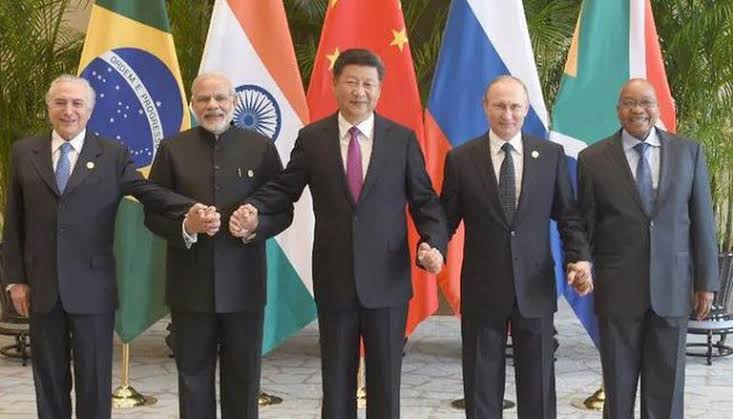BRICS Could Create Its Own Reserve Currency

Since its creation in the mid-2000s, the BRICS group of major emerging economies has promoted extensive cooperation between members, and recently, has begun pushing for a global realignment of geopolitical power to better match members’ economic, geographic and demographic potential with their position in the international order.
The BRICS group of nations could create a new world reserve currency to better serve their economic interests, former president and prime minister Dmitry Medvedev, who now serves as deputy chairman of Russia’s Security Council, has indicated.
“The best protection against the rotting euro will be the transition to new payment methods in trade with our reliable partners, including through the use of national currencies – the Russian ruble, the Chinese yuan, the Indian rupee, etc. In the future, the creation of a new reserve currency of BRICS countries is also possible. The dollar, euro and pound sterling are clearly not enough for the modern world,” Medvedev wrote on his Telegram page on Tuesday, commenting on the parity reached between the euro and dollar exchange rate.
The crisis in the euro zone has been a long time coming, and is the result of the self-inflicted crisis Brussels has voluntarily pushed itself into, the former prime minister said.
“First, EU members shot themselves in the head with a sanctions pistol. Now, they are reaping the bitter fruits of a decline in production, postcritical inflation in food prices, the loss of competitiveness of their goods and expectations of a winter in freezing ice houses without our gas. In global terms, this serves as a confirmation of the extremely ill-conceived nature of the sanctions slapped on Russia. Sanctions don’t work. Sanctions are harmful to the Europeans themselves. So the euro is weakened,” Medvedev wrote.
The Security Council deputy chairman accused Washington and London of “breeding” the EU’s politicians like “shell game con artists,” and treating them as “useful European idiots” by pushing them into ill-thought out restrictions against Russia which the White House, comparably speaking at least, has proven better at avoiding.
“But one finds no any sympathy for them, since it was the Russophobes from the EU who unleashed the hybrid war with Russia and opened the wide economic front against us,” Medvedev wrote.
In any event, he suggested, “the solvency of Europe worries us little.”
“We need to deal with the adaptation of our economy to the new, very difficult conditions. To solve problems in industry, including securing technological sovereignty. There is still much to be done here,” the politician stressed.
Medvedev’s latest comments continue to break with the image he set for himself in the 2000s and much of the 2010s as a hamburger- and iPhone-loving proponent of integrating with the West as much as possible and adopting Western standards in education, the judiciary, business, etc. Last month, the former president took to Telegram to lash out at Russia-hating “bastards and degenerates” after his son’s US visa was revoked.
The BRICS group of nations held their 14th summit in Beijing, in late June, where they agreed to take joint measures to strengthen and reform global governance, and safeguard international peace and security. Also last month, Iran announced its intention to join BRICS, pointing to the the Islamic Republic’s “unique geographical position and its capabilities in the fields of energy, transit, and trade” and capacity to become a “golden route to connect” east and west.



